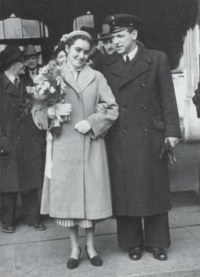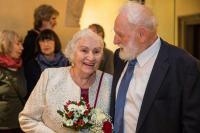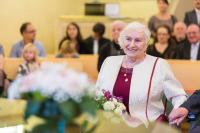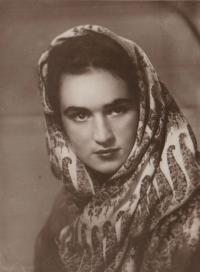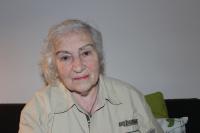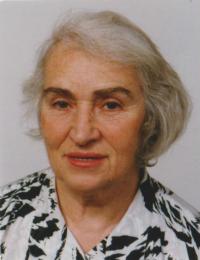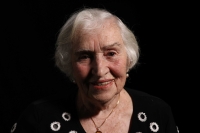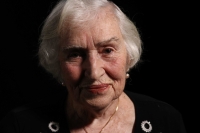We believed that the Soviet Union brought happiness to the whole world. It’s hard to give up such a belief

Download image
Galina Vaněčková was born on 16 June 1930 in Ekaterinburg (formerly Sverdlovsk), Russia. She spent her first years in the small town of Zilovo near Chita, where her father was building a hospital. After some time the family returned to Ekaterinburg, where the witness spent her childhood and adolescence. She grew up with boundless faith in Stalin and the justice of the Soviet regime. As a schoolgirl during the Second World War, she experienced severe material hardship and general determination and cohesion. After graduating from secondary school, she entered the Theatre Institute. She had to abandon her studies due to her mother’s serious illness, graduated from the pedagogical school and began working as a teacher. In 1953 she met her future husband Mirek Vaněček, who had come to the Soviet Union from Czechoslovakia to study geology. They wanted to get married, but this proved impossible, as marriages with foreign nationals were forbidden in the Soviet Union. Fortunately, the following year the law was repealed and the memoirist went to Czechoslovakia, where she and Mirek married in 1955. Beginnings in a foreign country were not easy, but she soon found a job at the University of Russian Language and Literature. After its closure in 1960, she worked at the Faculty of Arts of Charles University. She learned Czech and got used to a different mentality. At the university, she also began to do research and published a book. She had two sons. The invasion of Czechoslovakia by Warsaw Pact troops came as a huge shock to the witness, who still believed in Soviet ideology and considered the situation a misunderstanding or an individual failure. The hatred of ordinary Czechs often turned against her when she spoke in shops with a Russian accent. She wanted to join the Czechoslovak Communist Party to protest against the invasion of Warsaw Pact troops, but her colleagues talked her out of it because it might bring punishment from the Soviet authorities. She spent two years with her husband on a geological survey in Baghdad. It was only during the period of normalisation that she abandoned her belief in communist and Soviet ideology. She brought the Russian scientist Andrei Sakharov’s manifesto Reflections on Progress, Peaceful Coexistence and Intellectual Freedom to her students and together with them translated it into English. At the university, Galina Vaněčková devoted herself to literary science in addition to teaching, and her lifelong subject and love was the Russian modernist poet Marina Tsvetaeva, who lived in exile in Prague and its surroundings from 1922 to 1925. It was thanks to Galina Vaněčková that the first translations of this poet into Czech were made by Jana Štroblová and Hana Vrbová, and in 2001 the Marina Tsvetajeva Society was founded, which was responsible for the publication of many publications, the organisation of a number of exhibitions and conferences, the installation of commemorative plaques and more. Galina Vaněčková served as its president for many years. She worked to establish the Marina Tsvetaeva Centre. At the time of the 2020 interview, she was living in Prague and was an opponent of the Putin regime.
